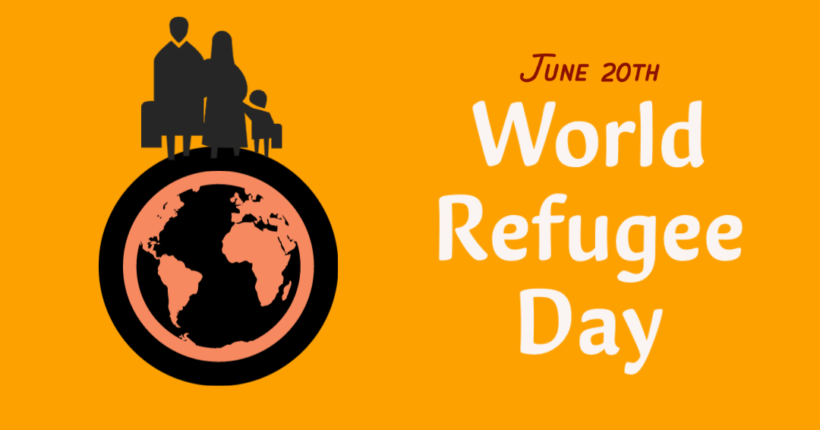The 20th of June 2022, marked World Refugee Day which was first established by the United Nations in 2001, in recognition of the 50th anniversary of the 1951 Convention Relating to the Status of Refugees. On the occasion of World Refugee Day, it is not only important to celebrate but to actually take a pause and think about practical steps which need to be taken to help people. As people with access to resources we can always do more. It is not about how much reach you have; it is about speaking up even if it is only one person listening to you. Each voice makes a difference.
A refugee crisis is nothing new. The UN Refugee Agency was established in 1950 initially for just three years to help refugees but it has been working ever since. In the 1960s, the decolonisation of Africa produced the first of that continent’s refugee crisis needing UNHCR intervention.
According to the UN a refugee is someone who “owing to well-founded fear of being persecuted for reasons of race, religion, nationality, membership of a particular social group or political opinion, is outside the country of his nationality and is unable or, owing to such fear, is unwilling to avail himself of the protection of that country; or who, not having a nationality and being outside the country of his former habitual residence, is unable or, owing to such fear, is unwilling to return to it.”
News about refugee crises has become unsurprising to us. It has become a routine which should be shocking but surprisingly it is not. Almost every other day one hears on the news about another conflict in some part of the world and people being displaced. Such news has become so common that without even blinking an eye one can continue with their day. Most often we distance ourselves from it saying that it does not affect us. It is happening in some faraway place. Even if it does not directly affect you, it is a grave misunderstanding that it will have no impact on you as all of us are part of the larger global ecosystem.
Is it part of our desensitizing that displaced people are nothing but statistics and numbers for us? The individual stories of woe behind each case are completely dehumanized. Be they from Syria or Palestine or Ukraine, Tigray or Honduras or somewhere else, it is important to remember that we are not dealing with numbers but rather with people including men, women and children who have had to leave everything behind in order to survive.
If I were to breakdown statistics of over 100 million total refugees in the world in 2022 into individual stories there wouldn’t be enough people to record it. To give more context to the gravity of the situation. The following table of statistics gives an overview.
| Country | Number of refugees and migrants | Reason for displacement |
| Syria | 13.5 million | Civil War |
| Venezuela | 5.1 million | Internal humanitarian crisis due to economic and political instability |
| Afghanistan | 2.2 million | Internal political and economic conflicts |
| South Sudan | 2.3 million | Economic crisis |
| Myanmar | 1 million | Violence against ethnic minority |
| Congo | 0.9 million | Internal conflicts |
| Somalia | 750000 approx. | Political Instability and civil war |
| Ukraine | 5.2 million | War |
| Central African Republic | 1 million | Internal Sectarian Violence |
As we see from the table above, people become refugee because of several reasons war, violence, political persecution, human rights violations, environment disasters etc. whatever the reason might be it is never easy to leave one’s home and country. Even though we might all be busy with our lives and have our own struggles. It is necessary to take a moment every now and then to look at these people living in the poorest of conditions with no security of food, shelter, education or even life.
Less than 1% of refuges are provided the support they need to resettle in a new country. It is not just about displacements; it is never easy to survive in another country which has different culture or language or living standards that one is not used to especially because of the financial vulnerability of the refugees. Also, almost 85% of refugees are hosted by developing countries (UNHCR). This seems to be another anomaly. Given the wealth of developed countries, one could reasonably expect that they would more easily host refugees and migrants but that’s not the case. Due to geographical proximity to the crisis zone or lax policies for entering the country, whatever might be the reason, the countries who themselves don’t have enough resources are still open to offering asylum to people in need.
Becoming a refugee is not just the problem of the present, it is a generational problem as refugees wait for an average of 20 years to be re-settled and assimilated (Global Citizen). Due to lack of access to education and other resources it is unlikely that the children of the refugees would be able to create a better life for themselves. It is possible that without proper rehabilitation a refugee crisis can turn into a vicious cycle of sustained poverty and impoverishment.
Sources-
https://www.worldvision.ca/stories/refugees/refugee-crises-around-the-world
https://www.globalcitizen.org/en/content/global-refugee-crisis-facts/
https://www.un.org/en/global-issues/refugees






